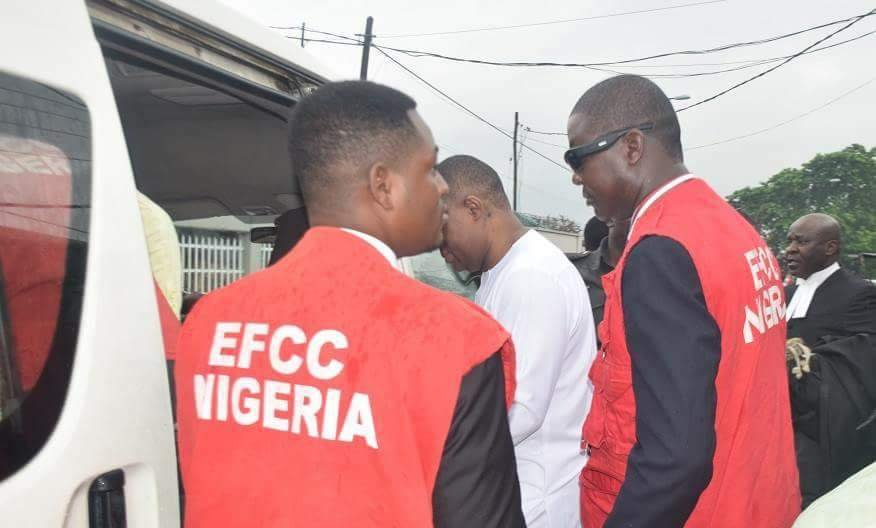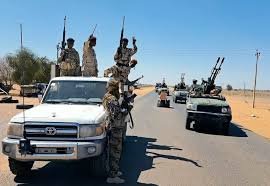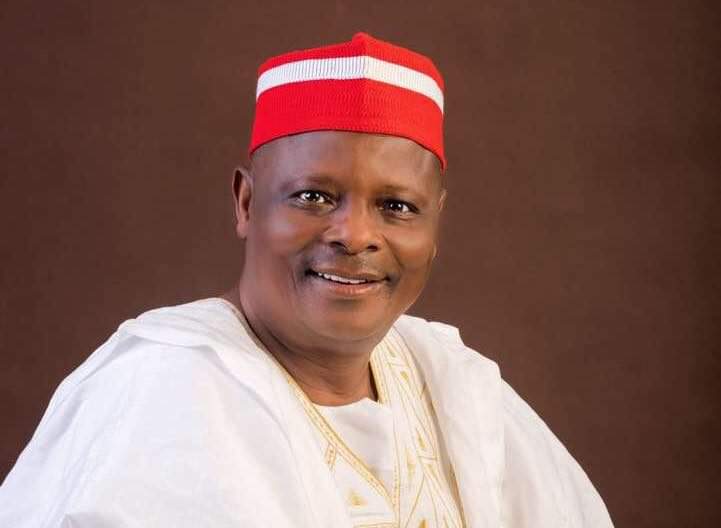The Chairman of the Economic and Financial Crimes Commission, (EFCC), Abdurasheed Bawa, has disclosed that the agency has received petitions on virtually all the eighteen Presidential candidates contesting the 2023 elections and that they are being investigated.
N177bn Fraud: Group Drags Rivers AG, EFCC To Court For Failing To Prosecute Sim Fubara, Others
Speaking recently in Abuja at a media briefing organised by the Presdiential Media Office, Bawa said: “There are lots of petitions left right centre against almost every politician that’s contesting for office. What do you think we do at this hour? Do you want us to invite presidential candidates to come and make statements? The same media will say it’s politically motivated. So we are working behind the scenes on all the petitions that have merit.”
He said that it is not politically motivated as the commission has a Petition Vetting Committee made up of officers from the legal department as well as operations that review these petitions whether they are in line with our mandate before they now recommend whether it can be investigated by the EFCC.
“On the property ownership register, we have a mandate as I said for dealers in automobiles, dealers in precious stones, real estate developers to make returns to us. As they make returns, we are creating a database. We are receiving all of those reports. As it is coming we are building up a database. Of course, land registration agencies have a database of property in Abuja, just like Lagos State has a database for that.
“These are two different databases. In the long run there should be an ecosystem that should make us talk to one another. On the issue of welfare, again, thank God for the government of President Muhammadu Buhari. One of the first things he did when I came on board was to approve for us a very robust severance package. And everybody in EFCC is happy about it.
“Everyone is looking towards retirement. So, we are secure in that regard, except for someone that wants to think otherwise. You know human nature. At times you have one, you want to have two and all of that. And for those that are tempted, we are dealing with them one at a time as we have their information and we investigate.
“On the issue of risk, of course there are risks. When you are prosecuting someone, to him, he can take it as a matter of life and death. But we are very prayerful at the EFCC. We are Muslims and Christians. We’ll continue to pray. But we believe that one cannot die except his time has come. And nothing bad can happen if God has not destined it to happen,” he said.
Speaking on the activities of the agency and conviction rate, he said “was there any institution of government before the EFCC that has taken somebody to court and got the person convicted for corruption? We should appreciate where we are now that the prosecutions and investigations are even being conducted by an agency and we are succeeding instead of looking at it the other way round. I think the courts are helping. Look at the figures. We didn’t convict them from our offices, they were convicted in court.
“So a politically- exposed person will continue to be politically-exposed. It is natural for that to even happen because you cannot conclude an investigation of a politically-exposed person within one week or weeks; it takes months and years to conclude because of multiple transactions that have taken place because of complicity of the matters and their cases of crimes. But for somebody that is engaged in cybercrime, it is very easy to do. The circle of investigation can be concluded within a month or even days,” he said.
Speaking on presidential pardon for convicts, he said, “you asked about presidential pardon, is it provided for in our laws? It’s in our laws. We’ve done our bit. The government has done its bit. It’s like the powers of the AGF given under Section 174 of the Constitution. He can stop any trial before sentencing. Of course, he has to be guided by certain provisions of public interest, et al. All of these things are important and germane. This brings me to the issue of us trusting our leaders and we don’t know the information they have that made them take certain decisions. So we are not disturbed about it. It’s the decision of the government and we are part of the government.”
He confirmed that in respect to elections, are there key politicians on the EFCC watch list and the commission is doing a lot about vote buying, adding that “we are doing quite a lot on this. We’re working with INEC; we are working with a lot of people. Ultimately, we want to work with Nigerians. Nigerians should know the implications of selling their votes or accepting that their votes should be bought by these individuals. Already, because of what is ongoing a lot of people are scared about whether or not they can buy votes. Whether or not people will be ready to sell their votes? We hope and pray that our modest efforts will be able to curtail vote buying.
“God willing, we are working towards seeing that we contribute our quota to curtail that. Of course, we are watching; a lot of Nigerians have also provided us with information. I would like you to join them and provide us with information if you have any,” he added.
And on sales of recovered assets and transparency in the process, he said “It was transparently done. Nigerians bided and Nigerians won. Some people were bided out of course. And some people succeeded in having their bids accepted, being the highest bidders. And it was done first in Lagos and other locations. And as I said we are going to start that of real estate very soon and it is going to follow a similar trend. But we have to give some people the right of first refusal. And these assets belong to the Federal Government, and if federal government agencies are in need of them, but we’ll also consider them before others.”






















